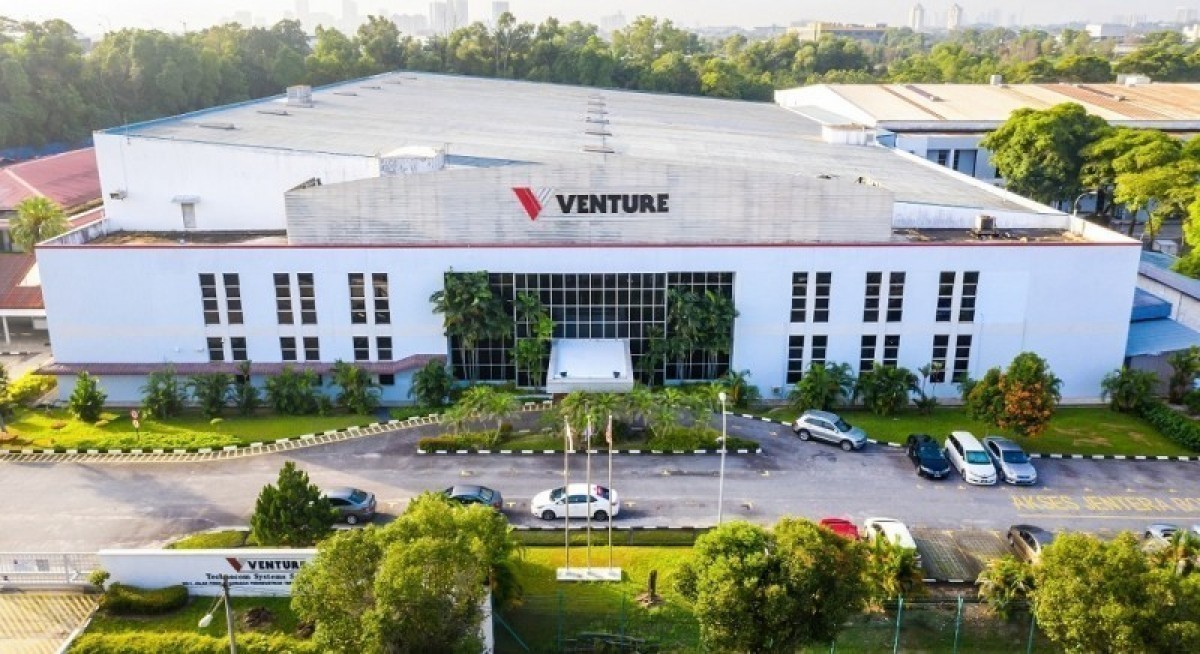Earnings for 1HFY2025 were down 8.6% y-o-y to $113 million, dragged down by the consumer lifestyle division, which suffered from lower order volumes, which is likely to persist in the coming quarters, amid wider tariff-related uncertainties.
Nonetheless, the company is sending encouraging signals of broad-based momentum in business wins, points out Citi Research’s Arthur Pineda in his Aug 6 report, where he is keeping his “neutral” call along with a target price of $11.80.
In 2QFY2025, Venture’s net profit margins compressed to 8.9% from 9.1% in 1QFY2025 despite the sequential revenue growth. Pineda attributes this to the minimum wage increase and unfavourable currency impact from its Malaysian operations. Venture has maintained that it will continue to streamline its cost structure and proactively work on productivity improvement initiatives.
There are, of course, tariff-related issues to deal with. “While these had not been visible in 1HFY2025 numbers, its introduction into 3QFY2025 could raise questions on who foots the tariff bill. This may ultimately be shared across the supply chain with Venture potentially partly sharing the burden, else risk losing market share,” says Pineda.
See also: Analysts mostly bullish on EQDP's impact on SGX; Morningstar views tailwind as ‘temporary’
Nonetheless, overall impact, from his perspective, should be manageable, with the US accounting for about 20% of Venture’s revenue, thus leaving the remaining 80% “broadly unaffected” by tariffs.
Alongside the expected interim dividend of 25 cents per share, Pineda is “surprised” by the special dividend announcement of five cents per share, which he notes reflects Venture’s strong cash generation capabilities and commitment to shareholder returns.
The special dividend marginally increases dividend yield to 6.2% from 5.9% and is supported by its strong balance sheet position with a net cash position of $1.26 billion.
See also: RHB's Yeo raises Frencken's target price to $2.03 with demand picking up from customer restocking
Venture continues to pursue its accelerated 10 million share buyback programme, with 1.46 million shares bought back and retired in 1HFY2025.
Downside risks that could impede the stock from reaching Pineda’s target price include the drop of demand if Venture’s customers undertake mergers and acquisitions (M&A), labour shortages as a result of original equipment manufacturers (OEM) trying to find new supply chain alternatives, an unexpected slowdown in economies and finally, a material downside demand for the group’s products owing to tariff risks.
“Conversely, if these factors move in favour of the company or if tariff risks resolve quickly or are eliminated, the stock could outperform our target price with growth potentially returning,” he says.
Ling Lee Keng of DBS Group Research, while having kept her “hold” call like Pineda, has raised her target price on the stock to $13.60 from $11.80 previously.
With Venture’s 1HFY2025 revenue and net profit, respectively, representing 50% and 49% of her FY2025 projections, in line with expectations, she is maintaining her earnings forecasts for FY2025 and FY2026.
Ling’s raised target price is based on a four-year average P/E of 16 times. The higher P/E multiple, she notes, reflects the potential re-rating of quality stocks under the Monetary Authority of Singapore’s (MAS) equity market development programme (EQDP).
She acknowledges that near-term weakness persists in the consumer lifestyle segment due to longer product cycles. Nonetheless, Venture continues to strengthen its positioning and gain market share across other technology domains, laying the groundwork for a broader-based recovery.
For more stories about where money flows, click here for Capital Section
Perhaps the most optimistic of the analysts are UOB Kay Hian’s (UOBKH) John Cheong and Heidi Mo, who have upgraded their call on Venture to “buy”, at a raised target price of $14.35 from $12.01 previously.
The way they see it, Venture is aiming to tap into the rising demand for hyperscale data centres and requirements for faster data interconnectivity to grow its networking and communication solutions. “Also, it is growing its share in the semiconductor-related equipment tech domain, where surging demand for AI is driving an increased need for advanced semiconductors.”
Cheong and Mo add that besides Venture’s net cash of $1.26 billion, which accounts for around 30% of its current market cap, the stock also “led the pack” of US-listed peers, which were mostly in net debt positions. “The increase in our valuation multiple peg is to factor in the improvement in capital management, which is evident in its increasing share buyback and special dividends.”




